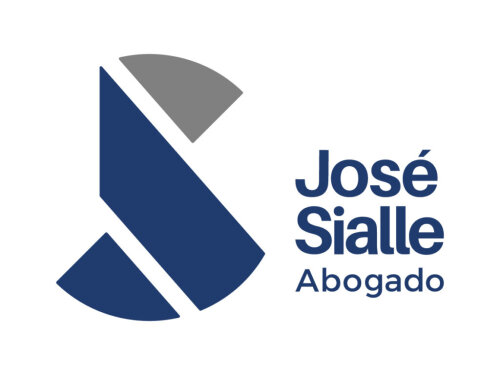Best Sanctions & Export Controls Lawyers in Córdoba
Share your needs with us, get contacted by law firms.
Free. Takes 2 min.
List of the best lawyers in Córdoba, Argentina
About Sanctions & Export Controls Law in Córdoba, Argentina
Sanctions and export controls in Córdoba are governed primarily by national Argentine law and by international obligations assumed by Argentina. The province of Córdoba does not set independent foreign policy or international sanctions regimes - those rules come from the national government and from international organizations to which Argentina belongs. Practically, businesses and individuals in Córdoba must comply with Argentine customs rules, export control regulations for strategic and dual-use goods, and any sanctions or embargoes that Argentina enforces based on United Nations resolutions or national decisions.
Enforcement focuses on export licensing, customs declarations, trade documentation, and financial controls. Key national agencies coordinate and enforce these rules, while local enforcement and administrative processes are carried out at ports, airports and customs offices used by exporters in Córdoba. Compliance obligations affect manufacturers, technology companies, research organizations, logistics providers, banks and any party involved in cross-border trade or international financial transactions.
Why You May Need a Lawyer
Sanctions and export control matters can be legally and commercially complex. You may need a lawyer in Córdoba for several reasons:
- To assess risk - determine whether your goods, services or technology fall under export controls or sanctions lists, including dual-use classification and end-user restrictions.
- To obtain or contest export licenses - lawyers can help prepare applications, negotiate conditions and respond to requests for further information by authorities.
- To manage investigations and enforcement - if customs, tax or other authorities initiate audits, seizures, fines or criminal inquiries, a lawyer provides legal defense and procedural protection.
- To design compliance programs - lawyers advise on buyer screening, internal controls, recordkeeping, training and transactional procedures to reduce the risk of violations.
- To handle international exposure - Argentine companies may be affected by foreign sanctions (for example, measures adopted by the United States or the European Union). A lawyer can coordinate local and foreign legal advice and mitigate cross-jurisdictional risks.
- To carry out voluntary disclosures or remedial actions - in many cases, early legal engagement improves chances of favorable settlements, reduced penalties or more limited enforcement action.
Local Laws Overview
The legal framework relevant in Córdoba combines national legislation, regulations and administrative practice. Important elements include:
- Customs and export laws - Customs rules administered by the Administración Federal de Ingresos Públicos (AFIP) and its Dirección General de Aduanas (DGA) regulate export declarations, tariffs, origin rules, export restrictions and customs penalties. Proper classification and accurate documentation are essential.
- Export control of strategic and dual-use goods - Argentina controls the export of military items, weapons-related goods and certain dual-use technologies. Such exports often require authorization, end-user declarations and specific licenses. Classification guidance and lists are published by national authorities.
- Sanctions and embargoes - Argentina enforces sanctions derived from United Nations resolutions and may adopt national measures. Sanctions can prohibit trade, financial transactions or provision of services to listed persons, entities or countries.
- Financial controls and anti-money-laundering - the Unidad de Información Financiera (UIF) and the Banco Central de la República Argentina (BCRA) oversee financial reporting, currency controls and suspicious transaction reporting. These rules interact with sanctions enforcement, especially when payments or transfers are blocked or questioned.
- Criminal and administrative penalties - violations of customs, export control and sanctions rules can lead to administrative fines, seizure of goods, suspension of export privileges and, in serious cases, criminal prosecution for smuggling, fraud or supporting prohibited activities. Local courts and administrative bodies handle proceedings following national law.
- Provincial considerations - Córdoba authorities administer local business licensing, transport authorizations and provincial taxes that affect logistics and costs of export. However, provincial rules do not override national sanctions or foreign policy obligations.
Frequently Asked Questions
What is the difference between a sanctions regime and export controls?
Sanctions are measures that restrict dealings with specific countries, entities or individuals - often including trade, finance and services. Export controls regulate the export and transfer of particular goods, software and technologies - especially military and dual-use items - to prevent proliferation or misuse. Both can overlap when a controlled item is also subject to sanctions regarding destination or end-user.
Who enforces sanctions and export controls in Argentina?
Enforcement is primarily at the national level. Key actors include AFIP and the Dirección General de Aduanas for customs and export control matters, the UIF and BCRA for financial controls, and ministries responsible for foreign affairs and national defense for policy and licensing. Local customs offices and judicial authorities in Córdoba may carry out inspections, detentions and prosecutions under national law.
Can a Córdoba company be affected by foreign sanctions, such as those from the United States or the European Union?
Yes. Even if Argentina does not formally adopt a foreign sanctions regime, practical exposure exists when Córdoba companies transact in foreign currency, use foreign banks or interact with international partners who must comply with their own sanctions. This can lead to blocked payments, contract cancellations or secondary effects in global supply chains. Legal advice helps assess and mitigate this exposure.
How do I know if my product needs an export license?
Determining whether an export license is required depends on product classification, intended end-use, destination country and the ultimate end-user. Companies should review national control lists for military and dual-use goods and consult customs and licensing authorities. A lawyer or trade specialist can assist with classification requests and license applications.
What are the usual penalties for violating export controls or sanctions?
Penalties can include administrative fines, confiscation or detention of goods, suspension or revocation of export privileges, civil liability for damages, and criminal charges in cases of smuggling, false declarations or intentional evasion. The severity depends on the nature of the violation, the value of the goods and whether the breach was intentional.
What steps should I take if customs in Córdoba seizes my shipment?
Immediately notify legal counsel and preserve all documents related to the shipment - invoices, contracts, export declarations, communications with buyers and transport documents. Counsel can request information from authorities, prepare a defense, submit corrective declarations or, if appropriate, initiate administrative appeals or judicial protection measures.
How can I screen customers and partners for sanctions risk?
Develop a screening process that checks customers and counterparties against applicable sanctions lists and adverse media. Collect due diligence documents - corporate registration, beneficial owner information, end-user declarations and the intended use of goods. Legal advisors can help design procedures proportionate to your business risk and implement contractual protections such as representations, warranties and termination clauses.
Do I need a written export compliance program?
While not always mandatory, a written compliance program is a best practice and often reduces enforcement risk. A program should include clear policies, risk assessments, transaction screening, staff training, recordkeeping, internal controls and procedures for reporting and responding to potential violations.
Can I make a voluntary disclosure if I discover a past violation?
Yes. Voluntary disclosures to the relevant authority may lead to reduced fines or more favorable administrative outcomes, but strategies vary by agency and case facts. Consult a lawyer before submitting disclosures to ensure legal protections and to coordinate remedial measures effectively.
How do I find a qualified lawyer in Córdoba for sanctions and export controls?
Look for lawyers or law firms with experience in international trade, customs law, regulatory compliance and administrative or criminal defense related to trade. Ask about prior cases, licensing experience and relationships with relevant authorities. Professional bodies such as the local bar association - Colegio de Abogados de Córdoba - and trade associations can provide referrals. Consider also whether you need coordination with foreign counsel for cross-border issues.
Additional Resources
Useful institutions and organizations to consult include national agencies and relevant local bodies - for example, the Administración Federal de Ingresos Públicos (AFIP) and its Dirección General de Aduanas (DGA) for customs and export documentation; the Unidad de Información Financiera (UIF) and Banco Central de la República Argentina (BCRA) for financial controls; and the ministry offices responsible for foreign policy and licensing for strategic goods and embargoes.
Local resources in Córdoba include the Colegio de Abogados de Córdoba for lawyer referrals and ethical guidance, provincial trade and export chambers for practical export assistance, and industry associations that publish guidance on compliance and classification for sector-specific goods. International organizations - such as the United Nations and regional groupings like MERCOSUR - provide the context for sanctions obligations.
Next Steps
If you believe you need legal assistance in Córdoba for sanctions or export control issues, follow these steps:
- Gather documents - collect contracts, invoices, export declarations, communications, technical specifications and any licenses or rejections related to the transaction.
- Conduct an internal review - map the transaction flow, identify parties involved, confirm product classification and destination, and document any screening already performed.
- Contact a specialist lawyer - seek counsel with experience in customs, export controls and sanctions. Share your documentation for an initial assessment and legal strategy.
- Consider interim measures - suspend transactions that pose clear legal risk, place funds or goods on hold if advised, and preserve evidence to show proactive compliance.
- Implement compliance improvements - based on legal advice, establish screening procedures, train staff, update contracts and consider filing any required disclosures or license applications.
Early legal engagement often improves outcomes and limits penalties. A careful, documented approach to compliance protects business operations in Córdoba while ensuring adherence to Argentina's national and international obligations.
Lawzana helps you find the best lawyers and law firms in Córdoba through a curated and pre-screened list of qualified legal professionals. Our platform offers rankings and detailed profiles of attorneys and law firms, allowing you to compare based on practice areas, including Sanctions & Export Controls, experience, and client feedback.
Each profile includes a description of the firm's areas of practice, client reviews, team members and partners, year of establishment, spoken languages, office locations, contact information, social media presence, and any published articles or resources. Most firms on our platform speak English and are experienced in both local and international legal matters.
Get a quote from top-rated law firms in Córdoba, Argentina — quickly, securely, and without unnecessary hassle.
Disclaimer:
The information provided on this page is for general informational purposes only and does not constitute legal advice. While we strive to ensure the accuracy and relevance of the content, legal information may change over time, and interpretations of the law can vary. You should always consult with a qualified legal professional for advice specific to your situation.
We disclaim all liability for actions taken or not taken based on the content of this page. If you believe any information is incorrect or outdated, please contact us, and we will review and update it where appropriate.













